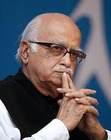L.K. Advani's Blog, page 12
November 7, 2012
SARDAR PATEL’S STUPENDOUS ACHIEVEMENT
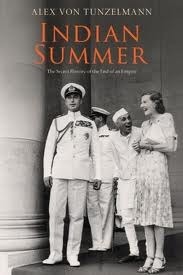 An extremely interesting book I have come across lately is Indian Summer: The Secret History of the End of an Empire. The writer is a German lady, Alex Von Tunzelmann. It’s her debut book.
An extremely interesting book I have come across lately is Indian Summer: The Secret History of the End of an Empire. The writer is a German lady, Alex Von Tunzelmann. It’s her debut book.
Award-winning historian William Dalrymple has described the book as “a masterpiece”, and “unquestionably the best book I have ever read on the Independence and Partition of India and Pakistan.”
When the Britishers ruled India, the country was not a single political unit. It comprised of two distinct parts: first, British India, second, princely India. Princely India comprised of 564 states.
In a book titled The Story of Integration of the Indian States by V.P. Menon, renowned journalist M.V. Kamath made this comment about the author:
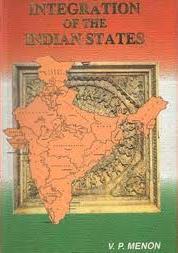
“While credit should go to the Sardar for bringing all the princely states – as they were called – into the Indian Union, he could achieve it only because he had the unstinting support of one who was totally conversant with the mentality and psychology of the princes. And who was this man? It was Vapal Pangunni Menon – V.P. Menon as he was soon to be known.
“Little is known about VP’s early life. For a man who became, for all practical purposes, the right hand man, first of the last Viceroy, Lord Louis Mountbatten, and later, of the Iron Man of India, the great Sardar Vallabhbhai Patel, he has left very little behind when he voluntarily faded into oblivion. Had he wanted anything by way of power and pelf, he could have got it for the asking.”
This book is the first (1955) of the two monumental volumes written by V.P. Menon on that phase of Indian history. The second book (1957) bore the title : The Transfer of Power in India.
The book that provoked me to write today’s blog has a chapter on this issue of princely states titled ‘A Full Basket of Apples’. This chapter opens thus:
“On 18 July, the king signed the India Independence Act in London, and the Mountbattens celebrated their silver wedding anniversary in Delhi, twenty-five years after having become engaged in that city.”
 This book says that the British Government’s intentions towards the princely states “had been deliberately left unclear by Attlee”. Mountbatten was supposed to aid and assist the States in coming to fair and just arrangements with the leaders of British India as to their future relationships. The new Viceroy was also told “to persuade the rulers of any Indian States in which political process has been slow to progress rapidly towards some form of more democratic government.”
This book says that the British Government’s intentions towards the princely states “had been deliberately left unclear by Attlee”. Mountbatten was supposed to aid and assist the States in coming to fair and just arrangements with the leaders of British India as to their future relationships. The new Viceroy was also told “to persuade the rulers of any Indian States in which political process has been slow to progress rapidly towards some form of more democratic government.”
Mountabatten interpreted this to mean that he should exert pressure upon each prince to go with the majority of his people in deciding whether to join India or Pakistan. He agreed to help Patel, and pledged to deliver ‘a full basket of apples’ before 15 August.
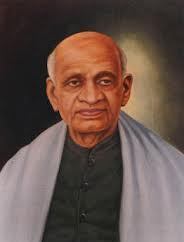 On July 9, representatives of the states met to ascertain their starting positions. According to Tunzelmann, a majority of states were inclined to join India. “But four of the most important states – Hyderabad, Kashmir, Bhopal, and Travancore – wanted to become independent nations. Each of these states had its own unique set of difficulties. The Nizam of Hyderabad was the richest man in the world; he was a Muslim, and his people were mostly Hindus. His state was enormous, and both France and the United States were rumoured to be ready to recognize it. The Maharaja of Kashmir was a Hindu; his people were mostly Muslims. His state was even bigger than Hyderabad, but more limited by its lack of trade routes and industrial potential. The Nawab of Bhopal was an able and ambitious Muslim prince, and one of Jinnah’s advisers: unfortunately for him, his state had a Hindu majority, and was stuck right in the middle of India, over 500 miles from the likely border with Pakistan. Uranium deposits had recently been discovered in Travancore, lending the situation there a greater international interest.”
On July 9, representatives of the states met to ascertain their starting positions. According to Tunzelmann, a majority of states were inclined to join India. “But four of the most important states – Hyderabad, Kashmir, Bhopal, and Travancore – wanted to become independent nations. Each of these states had its own unique set of difficulties. The Nizam of Hyderabad was the richest man in the world; he was a Muslim, and his people were mostly Hindus. His state was enormous, and both France and the United States were rumoured to be ready to recognize it. The Maharaja of Kashmir was a Hindu; his people were mostly Muslims. His state was even bigger than Hyderabad, but more limited by its lack of trade routes and industrial potential. The Nawab of Bhopal was an able and ambitious Muslim prince, and one of Jinnah’s advisers: unfortunately for him, his state had a Hindu majority, and was stuck right in the middle of India, over 500 miles from the likely border with Pakistan. Uranium deposits had recently been discovered in Travancore, lending the situation there a greater international interest.”
The Muslim League strategy in this entire matter was essentially focused on making more and more princes decline to join India. Jinnah was keen to see that Nehru and Patel “would inherit a moth-eaten India to go with his moth-eaten Pakistan.” But Sardar Patel, Lord Mountbatten, and V.P. Menon acting in perfect concert defeated all such designs.
The concluding lines of this significant chapter are a great tribute to the achievement of this combination. Alex Von Tunzelmann writes:
 “Whatever may be said about Mountbatten’s tactics or the machinations of Patel, their achievement remains remarkable. Between them, and in less than a year, it may be argued that these two men achieved a larger India, more closely integrated, than had 90 years of the British raj, 180 years of the Mughal Empire, or 130 years of Asoka and the Maurya rulers.”
“Whatever may be said about Mountbatten’s tactics or the machinations of Patel, their achievement remains remarkable. Between them, and in less than a year, it may be argued that these two men achieved a larger India, more closely integrated, than had 90 years of the British raj, 180 years of the Mughal Empire, or 130 years of Asoka and the Maurya rulers.”
What the German lady has written so eloquently has been substantiated by V.P. Menon with facts and figures in his 612-page tome The Story of Integration of the Indian States thus:
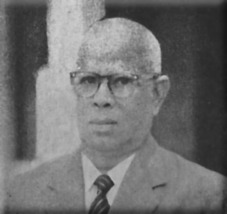 “The 564 Indian States comprised two-fifths or almost half of the country. Some were large States, some were mere jagirs. When India was partitioned and Pakistan became a separate state India lost an area of 364,737 square miles and a population of 81.5 million but by the integration of the states India received an area of nearly 500,000 square miles with a population of 86.5 million, India was adequately compensated.”
“The 564 Indian States comprised two-fifths or almost half of the country. Some were large States, some were mere jagirs. When India was partitioned and Pakistan became a separate state India lost an area of 364,737 square miles and a population of 81.5 million but by the integration of the states India received an area of nearly 500,000 square miles with a population of 86.5 million, India was adequately compensated.”
In his preface to his book on the integration of states, V.P. Menon has written : “This book of is in part fulfilment of a promise made to the late Sardar Vallabhbhai Patel. It was his earnest desire that I should write two books, one narrating the events leading to the transfer of power and the other dealing with the integration of the Indian States.
TAIL PIECE
On the eve of Sardar Patel’s birth anniversary this year, that is, on 30th October, 2012, the PIONEER published a news-story saying that Prime Minister Nehru wanted to scuttle Sardar’s action plan for the liberation of Hyderabad.
The news-story reported runs thus:
“Sardar Vallabhbhai Patel, the then Deputy Prime Minister and Home Minister of India, whose 137th birth anniversary is on October 31, was insulted, humiliated and disgraced by the then Prime Minister, Pandit Jawaharlal Nehru, during a Cabinet meeting. “You are a complete communalist and I’ll never be a party to your suggestions and proposals,” Nehru shouted at Patel during a crucial Cabinet meeting to discuss the liberation of Hyderabad by the Army from the tyranny of the Razakkars, the then Nizam’s private army.
“A shocked Sardar Patel collected his papers from the table and slowly walked out of the Cabinet room. That was the last time Patel attended a Cabinet meeting. He also stopped speaking to Nehru since then,” writes MKK Nair, a 1947 batch IAS officer, in his memoirs “With No Ill Feeling to Anybody”. Nair had close ties with both Sardar and VP Menon, his Man Friday.
Though Nair has not written the exact date of the above mentioned Cabinet meeting, it could have happened during the weeks prior to the liberation of Hyderabad by the Indian Army. Operation Polo, the mission to liberate Hyderabad from the Nizam, began on September 13, 1948 and culminated on September 18. While Sardar Patel wanted direct military action to liberate Hyderabad from the rape and mayhem perpetrated by the 2,00,000 Razakars, Nehru preferred the United Nations route.
Nair writes that Nehru’s personal hatred for Sardar Patel came out in the open on December 15, 1950, the day the Sardar breathed his last in Bombay (now Mumbai). “Immediately after he got the news about Sardar Patel’s death, Nehru sent two notes to the Ministry of States. The notes reached VP Menon, the then Secretary to the Ministry. In one of the notes, Nehru had asked Menon to send the official Cadillac car used by Sardar Patel to the former’s office. The second note was shocking. Nehru wanted government secretaries desirous of attending Sardar Patel’s last rites to do so at their own personal expenses.
“But Menon convened a meeting of all secretaries and asked them to furnish the names of those who want to attend the last rites of Patel. He did not mention anything about the note sent by Nehru. Menon paid the entire cost of the air tickets for those secretaries who expressed their wish to attend Sardar’s last journey.”
L.K. Advani
New Delhi
7 Nov, 2012

November 4, 2012
इतिहास को दबाना नहीं चाहिए
मेरे पूर्व प्रकाशित ब्लॉग में से एक का शीर्षक है: 25 जून, 1975: भारत के लिए एक न भूलने वाला दिन। एक अन्य ब्लॉग का शीर्षक था: 1975 का आपातकाल नाजी शासन जैसा।
मेरे संस्मरणों को प्रकाशित करने वाली ‘रूपा एण्ड कम्पनी‘ ने अस्सी से अधिक मेरे ब्लॉगों को संग्रहित कर ‘एज़ आय सी इट‘ (AS I SEE IT) शीर्षक से पुस्तक प्रकाशित की है।
इनमें से अनेक ब्लॉग जून 1975 में देश पर थोपे गए कठोर आपातकाल और 21 मास बाद जब मार्च 1977 में लोक सभा चुनाव हुए जिनमें श्रीमती इंदिरा गांधी की सरकार को उखाड़ फेंका गया और नई दिल्ली में श्री मोरारजीभाई देसाई के नेतृत्व में जनता पार्टी सरकार बनी - से सम्बन्धित हैं। स्वतंत्रता के बाद यह पहला मौका था जब केन्द्र में एक गैर-कांग्रेसी सरकार बनी।
1975 के आपातकाल के दौरान 1,10,806 लोगों को जेलों में बंदी बना दिया गया। इनमें प्राय: सभी प्रमुख विपक्षी नेता, बड़ी संख्या में सांसद, विधायक और पत्रकार शामिल थे।
जेल में रहते हुए मेरे द्वारा लिखे गए अनेक पैम्फलेटों में से एक था ‘ए टेल ऑफ टू इमरजेंसीज‘ जिसे आपातकाल के विरूध्द हमारे भूमिगत पार्टी कार्यकर्ताओं ने काफी मात्रा में वितरित किया था, इसमें 1975 के श्रीमती इंदिरा गांधी के आपातकाल और 1933 में एडोल्फ हिटलर के आपातकाल का आश्चर्यजनक तुलनात्मक अध्ययन वर्णित किया गया था।
पिछले सप्ताह जब एक सुप्रसिध्द फिल्म निर्माता मेरे घर पर आए तो मैंने उन्हें अपनी जेल डायरी ‘ए प्रिजनर्स स्क्रेप बुक‘ (A Prisoner’s Scrap Book) के साथ साथ ब्लॉग वाली अपनी पुस्तक भेंट की। मैंने विशेष रूप से उनका ध्यान एक ब्लॉग की ओर आकृष्ट किया जिसका शीर्षक है ”अब आपातकाल पर भी फिल्म बने।”
फिल्म निर्माता ने इस विषय में काफी रूचि दिखाई; वह मुझसे सहमत थे कि स्वतंत्र भारत के इतिहास के इस भयावह चरण की देश के फिल्म निर्माताओं ने पूरी तरह उपेक्षा की है लेकिन इस पर जोर दिया कि यह उपेक्षा इस कारण्ा से है कि जो लोग सत्तारूढ़ हैं, वे वास्तव में इसके सही और ईमानदार चित्रण को बर्दाश्त नहीं कर पाएंगे। यहां तक कि ब्रिटिशराज के दौरान भी देश में इतना दमन नहीं हुआ था और न ही मीडिया पर इतनी कड़ी सेंसरशिप लागू की गई थी।
 गत् सप्ताह घटित एक छोटी सी घटना ने फिल्म उद्योग के इस डर की पुष्टि की। पुड्डुचेरी के 46 वर्षीय एक लघु व्यवसायी एस. रवि ने 19 अक्तूबर 2012 को एक ट्वीट किया जिसमें उन्होंने लिखा था कि ‘वित्त मंत्री पी. चिदम्बरम के बेटे कार्ति के पास राबर्ट वाड्रा से ज्यादा सम्पत्ति है।‘
गत् सप्ताह घटित एक छोटी सी घटना ने फिल्म उद्योग के इस डर की पुष्टि की। पुड्डुचेरी के 46 वर्षीय एक लघु व्यवसायी एस. रवि ने 19 अक्तूबर 2012 को एक ट्वीट किया जिसमें उन्होंने लिखा था कि ‘वित्त मंत्री पी. चिदम्बरम के बेटे कार्ति के पास राबर्ट वाड्रा से ज्यादा सम्पत्ति है।‘
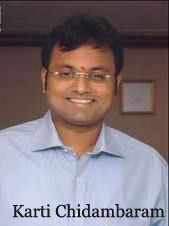 रवि, जो पुड्डुचेरी से ‘इण्डिया एगेंस्ट करप्शन‘ की गतिविधियों में सक्रिय हैं, को पुलिस ने इस ट्वीट के आधार पर बुलाया और उसे गिरफ्तार कर लिया। मद्रास उच्च न्यायालय के पूर्व न्यायाधीश डेविड अन्नोसामी ने रेखांकित किया कि जो आधार पुलिस ने रवि के केस में माना है, उस आधार पर अनेक ट्वीट करने वाले गिरफ्तार किए जा सकते हैं। यदि किसी व्यक्ति को किसी ट्वीट से शिकायत है तो निश्चित रूप से वह ट्वीट करने वाले व्यक्ति के विरूध्द मानहानि का केस दायर कर सकता है। सिर्फ न्यायालय द्वारा दोषी पाए जाने पर ही उसे गिरफ्तार किया जा सकता है।
रवि, जो पुड्डुचेरी से ‘इण्डिया एगेंस्ट करप्शन‘ की गतिविधियों में सक्रिय हैं, को पुलिस ने इस ट्वीट के आधार पर बुलाया और उसे गिरफ्तार कर लिया। मद्रास उच्च न्यायालय के पूर्व न्यायाधीश डेविड अन्नोसामी ने रेखांकित किया कि जो आधार पुलिस ने रवि के केस में माना है, उस आधार पर अनेक ट्वीट करने वाले गिरफ्तार किए जा सकते हैं। यदि किसी व्यक्ति को किसी ट्वीट से शिकायत है तो निश्चित रूप से वह ट्वीट करने वाले व्यक्ति के विरूध्द मानहानि का केस दायर कर सकता है। सिर्फ न्यायालय द्वारा दोषी पाए जाने पर ही उसे गिरफ्तार किया जा सकता है।
टेलपीस (पश्च्यलेख)
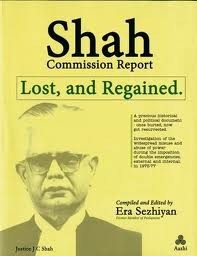
आपातकाल के पश्चात्, सत्ता संभालने के तुरंत बाद ही प्रधानमंत्री श्री मोरारजी देसाई ने आपातकाल के दौरान कांग्रेस सरकार द्वारा की गई ज्यादतियों और संवैधानिक एवं कानूनी प्रावधानों के दुरूपयोग की जांच हेतु एक जांच आयोग गठित किया।
आयोग की अध्यक्षता सर्वोच्च न्यायालय के मुख्य न्यायाधीश जे.सी. शाह ने की। आयोग का काम आसान नहीं था। फिर भी, बहुत कम आयोगों ने इतना बड़ा कर्तव्य इतनी शीघ्रता से पूरा किया होगा जैसा शाह आयोग ने कर दिखाया। अगस्त 1978 तक आयोग ने अपनी तीसरी और अंतिम रिपोर्ट सरकार को सौंप दी थी।
शाह आयोग रिपोर्ट पर टिप्पणी करते हुए विकीपीडिया लिखता है :
” रिपोर्ट विशेष रुप से इंदिरा गांधी और उनके पुत्र संजय गांधी और प्रशासनिक सेवाओं के उन अधिकारियों जिन्होंने संजय गांधी की सहायता की , के लिए हानिकारक है। इस रिपोर्ट को इंदिरा गांधी के नेतृत्व वाली कांग्रेस सरकार जो 1980 में सत्ता में पुन: वापस आई, ने रद्द कर दिया। सरकार ने असाधारण कदम उठाते हुए शाह आयोग की प्रत्येक प्रकाशित रिपोर्ट को वापस लेकर उसकी प्रतियों को नष्ट कर दिया। अब यह माना जाता है कि इस रिपोर्ट की एक मात्र प्रति भी भारत में मौजूद नहीं है। आयोग की तीसरी और अंतिम रिपोर्ट ऐसा लगता है भारत से बाहर चली गई और वर्तमान में नेशनल लायब्रेरी ऑफ आस्ट्रेलिया में है। ”
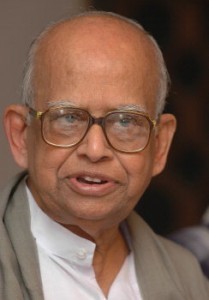 इस तथ्य की पुष्टि अन्य अनेक टिप्पणीकारों ने भी की है। मेरे वरिष्ठ संसदीय सहयोगी श्री इरा सेझियन जो डीएमके के संस्थापक श्री सी.एन. अन्नादुरई के कट्टर अनुयायी थे, इस सबसे काफी व्यथित थे और उन्होंने इन नष्ट हुए दस्तावेजों को सहेजकर निजी रूप से इन्हें प्रकाशित कर इतिहास और लोकतंत्र की उत्कृष्ट सेवा की है। मुझे इस पर गर्व है कि श्री सेझियन ने इस ताजा प्रकाशन ”शाह कमीशन रिपोर्ट : लोस्ट एण्ड रिगेन्ड” का लोकार्पण करने हेतु मुझे चेन्नई बुलाया था।
इस तथ्य की पुष्टि अन्य अनेक टिप्पणीकारों ने भी की है। मेरे वरिष्ठ संसदीय सहयोगी श्री इरा सेझियन जो डीएमके के संस्थापक श्री सी.एन. अन्नादुरई के कट्टर अनुयायी थे, इस सबसे काफी व्यथित थे और उन्होंने इन नष्ट हुए दस्तावेजों को सहेजकर निजी रूप से इन्हें प्रकाशित कर इतिहास और लोकतंत्र की उत्कृष्ट सेवा की है। मुझे इस पर गर्व है कि श्री सेझियन ने इस ताजा प्रकाशन ”शाह कमीशन रिपोर्ट : लोस्ट एण्ड रिगेन्ड” का लोकार्पण करने हेतु मुझे चेन्नई बुलाया था।
लालकृष्ण आडवाणी
नई दिल्ली
4 नवम्बर, 2012

November 3, 2012
HISTORY MUST NOT BE SUPPRESSED
One of my earlier blogs had as caption: India must not forget 25 June, 1975. Another blog was titled : Emergency of 1975 was akin to Nazi rule.
Rupa and Co., the publishers of my memoirs, have also compiled over eighty of my blog posts and published them as a book titled “AS I SEE IT”.
Several of these blogs relate to the outrageous emergency clamped on the country in June 1975 and lifted 21 months later, when in the Lok Sabha elections held in March 1977, Smt. Indira Gandhi’s Government was trounced, and a Janata Party Government headed by Shri Morarji Bhai Desai was formed in New Delhi. This was the first time since independence that a non-Congress Government was formed at the Centre.
During the 1975 Emergency, as many as 1,10,806 persons were put behind bars. These included almost all prominent opposition leaders, and a large number of MPs, MLAs and journalists.
One of the pamphlets I wrote from prison and which was widely circulated by our party activists working underground against the Emergency bore the caption, “A Tale of Two Emergencies”, in which a striking comparison was drawn between Mrs. Indira Gandhi’s Emergency of 1975 and Adolf Hitler’s Emergency of 1933!
Last week when a well-known film maker, called on me at my residence I presented him my prison diary titled “A Prisoner’s Scrap Book”, as also my book of blogs. I drew his pointed attention to one of the blogs captioned “Let there be a Film on the Emergency.”
The film producer evinced keen interest in the subject, wholly agreed with me that this traumatic phase of independent India’s history has been totally neglected by the country’s film chroniclers but emphasised that this neglect is because there is widespread apprehension that those in authority would not tolerate a fair and honest projection of what actually happened. Not even during British rule there had been such repression in the country nor had such severe censorship of the media taken place.
 A small event of last week fully justifies the film industry’s fears A 46-year old small scale Puducherry industrialist, by name S. Ravi, posted a tweet on October 19, 2012 in which he said that finance minister P. Chidambaram’s son Karti had amassed more wealth than Robert Vadra.
A small event of last week fully justifies the film industry’s fears A 46-year old small scale Puducherry industrialist, by name S. Ravi, posted a tweet on October 19, 2012 in which he said that finance minister P. Chidambaram’s son Karti had amassed more wealth than Robert Vadra.
 Ravi, who has been active in the events being organised in Puducherry by IAC (India against Corruption), was summoned by the police for this Tweet of his, and put under arrest. Former Madras High court judge David Annoussamy pointed out that by the yardstick applied in Ravi’s case by the police, many tweeters would have to be arrested. If any person feels aggrieved by a tweet, he can certainly file a defamation case against the person who has tweeted. Only if a court finds him guilty can he be arrested !
Ravi, who has been active in the events being organised in Puducherry by IAC (India against Corruption), was summoned by the police for this Tweet of his, and put under arrest. Former Madras High court judge David Annoussamy pointed out that by the yardstick applied in Ravi’s case by the police, many tweeters would have to be arrested. If any person feels aggrieved by a tweet, he can certainly file a defamation case against the person who has tweeted. Only if a court finds him guilty can he be arrested !
TAIL PIECE
 Shortly after assuming charge of the post Emergency government, Prime Minister Shri Morarji Desai set up a Commission of Inquiry to investigate the misuse and abuse of constitutional and legal provisions and the excesses and malpractices committed by the Congress Government during the Emergency period.
Shortly after assuming charge of the post Emergency government, Prime Minister Shri Morarji Desai set up a Commission of Inquiry to investigate the misuse and abuse of constitutional and legal provisions and the excesses and malpractices committed by the Congress Government during the Emergency period.
This Commission was headed by former Chief Justice of the Supreme Court, Justice J.C. Shah. The task assigned to the Commission was not small. Yet, very few Commissions assigned such a momentous duty could have completed its work so expeditiously. By August, 1978, the Commission submitted to Government its Third and Final Report.
Wikipedia carries this comment on the Shah Commission Report :
“The report was particularly scathing of Indira Gandhi, her son Sanjay Gandhi and the officers belonging to the civil services who helped Sanjay Gandhi. This report was later rejected by the Congress government headed by Indira Gandhi, which was back in power in 1980. The government also took the extraordinary step of recalling every published report of the Shah Commission and destroying the copies. It is now believed that not a single copy of this report exists in India. A third and final report of the commission seems to have slipped out and is currently held by the National Library of Australia.”
 This fact is confirmed by many other commentators also. A senior parliamentary colleague of mine, Shri Era Sezhiyan, who was an ardent follower of DMK founder Shri C.N. Annadurai was upset about all this and personally did a signal service to history and to democracy when he decided to privately republish the document destroyed. I deem it a proud privilege to have been invited by Shri Sezhiyan to Chennai to release this fresh publication renamed “Shah Commission Report: Lost and Regained”
This fact is confirmed by many other commentators also. A senior parliamentary colleague of mine, Shri Era Sezhiyan, who was an ardent follower of DMK founder Shri C.N. Annadurai was upset about all this and personally did a signal service to history and to democracy when he decided to privately republish the document destroyed. I deem it a proud privilege to have been invited by Shri Sezhiyan to Chennai to release this fresh publication renamed “Shah Commission Report: Lost and Regained”
L.K. Advani
New Delhi
4 Nov, 2012

October 3, 2012
एक साहित्यिक विभूति को सम्मानित किया बंगलौर ने
सन् 1927 में कराची (सिंध) में जन्म लेने के कारण जीवन के आरम्भिक बीस वर्ष ब्रिटिश शासन में गुजरे। अनेकों को यह जानकर आश्चर्य होगा कि मैंने हिन्दी पढ़ना और लिखना 1947 में तब सीखा जब भारत स्वतंत्र हुआ और साथ-साथ विभाजन की त्रासदी झेलनी पड़ी।
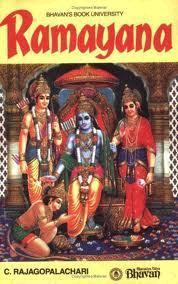
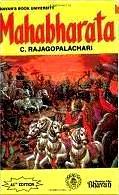
उस वर्ष तक मैं सिर्फ दो भाषाओं को जानता था - मेरी मातृभाषा सिंधी और अंग्रेजी, जिसके माध्यम से मेरी शिक्षा हुई।
मैंने रामायण और महाभारत सबसे पहले सिंधी में पढ़ी, और बाद में सी. राजगोपालाचारी द्वारा लिखित अंग्रेजी संस्करण तथा उसके बाद में गीता प्रेस, गोरखपुर द्वारा अंग्रेजी में प्रकाशित विस्तृत संस्करण। विभाजन के पश्चात् मैं कराची से राजस्थान पहुंचा, जहां मैंने देवनागरी पढ़ना और लिखना सीखा। आयु के बीसवें वर्ष की शुरूआत में जिन दो लेखकों की हिन्दी पुस्तकें मैंने पढ़ी उनमें डा0 कन्हैयालाल मुंशी (गुजराती से अनुदित) और महात्मा गांधी के निकट सहयोगी आचार्य विनोबा भावे की थीं।
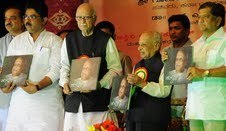 गत् सप्ताह मुझे बंगलौर में एक महान साहित्यिक विभूति डा0 जी. वेंकटसुब्बैया, जो इस वर्ष शतायु हुए हैं के अभिनन्दन समारोह में भाग लेने का अवसर मिला। इस कार्यक्रम की अध्यक्षता कर्नाटक के मुख्यमंत्री श्री जगदीश शेट्टर ने की। इस कार्यक्रम में मुझे विनोबा भावे द्वारा लिखित निबन्ध को स्मरण करने का मौका मिला जिसका शीर्षक था ”किस आयु में व्यक्ति बूढ़ा होता है?”।
गत् सप्ताह मुझे बंगलौर में एक महान साहित्यिक विभूति डा0 जी. वेंकटसुब्बैया, जो इस वर्ष शतायु हुए हैं के अभिनन्दन समारोह में भाग लेने का अवसर मिला। इस कार्यक्रम की अध्यक्षता कर्नाटक के मुख्यमंत्री श्री जगदीश शेट्टर ने की। इस कार्यक्रम में मुझे विनोबा भावे द्वारा लिखित निबन्ध को स्मरण करने का मौका मिला जिसका शीर्षक था ”किस आयु में व्यक्ति बूढ़ा होता है?”।
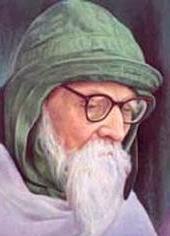 विनोबाजी ने अपने निबन्ध की शुरूआत इस संस्मरण से की कि उन्होंने कुरान, मराठी और अंग्रेजी में पढ़ी है, परन्तु वह मूल पाठ को अरबी भाषा में पढ़ने को उत्सुक हैं। इसलिए उन्होंने अरबी सीखनी शुरू की। एक मिलनेवाले ने टिप्पणी की कि ”अरबी सीख रहे हो? और वो भी इस उम्र में?” विनोबाजी ने जवाब दिया: ”मेरी उम्र से क्या दिक्कत है? मैं सिर्फ 65 का हूं।”
विनोबाजी ने अपने निबन्ध की शुरूआत इस संस्मरण से की कि उन्होंने कुरान, मराठी और अंग्रेजी में पढ़ी है, परन्तु वह मूल पाठ को अरबी भाषा में पढ़ने को उत्सुक हैं। इसलिए उन्होंने अरबी सीखनी शुरू की। एक मिलनेवाले ने टिप्पणी की कि ”अरबी सीख रहे हो? और वो भी इस उम्र में?” विनोबाजी ने जवाब दिया: ”मेरी उम्र से क्या दिक्कत है? मैं सिर्फ 65 का हूं।”
वह अपना निबन्ध पूरा करने गए जिसकी मुख्य कथा यह थी कि एक व्यक्ति तब बूढ़ा हाने लगता है जब वह मान ले कि जीवन के इस मुकाम पर वह कुछ भी नया सीख नहीं सकता।
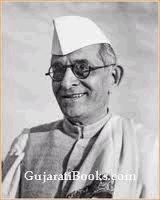 अभिनन्दन समारोह में मैंने टिप्पणी की कि ”जी.वी. जिस नाम से उनके असंख्य प्रशंसक जानते हैं, ने न केवल शानदार शतक लगाया अपितु इसमें छक्के और चौके भी शामिल हैं। उनको सम्बोधित ‘शब्द ब्रह्मा‘ विभूषण के वे पूर्णतया पात्र हैं। और आचार्य विनोबा द्वारा बताई गई कसौटी पर, मैं यह कहना चाहूंगा कि जो नब्बे के अंत तक पुस्तकें लिखते रहे हैं, को सदाबहार युवा मानना चाहिए। जीवी कभी भी वृध्द नहीं होंगे!
अभिनन्दन समारोह में मैंने टिप्पणी की कि ”जी.वी. जिस नाम से उनके असंख्य प्रशंसक जानते हैं, ने न केवल शानदार शतक लगाया अपितु इसमें छक्के और चौके भी शामिल हैं। उनको सम्बोधित ‘शब्द ब्रह्मा‘ विभूषण के वे पूर्णतया पात्र हैं। और आचार्य विनोबा द्वारा बताई गई कसौटी पर, मैं यह कहना चाहूंगा कि जो नब्बे के अंत तक पुस्तकें लिखते रहे हैं, को सदाबहार युवा मानना चाहिए। जीवी कभी भी वृध्द नहीं होंगे!
टेलपीस (पश्च्यलेख)
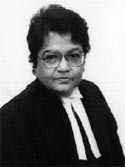 सर्वोच्च न्यायालय की पूर्व न्यायाधीश रूमा पाल ने नवम्बर, 2011 में पांचवें वी.एम. ताराकुण्डे स्मृति व्याख्यान में ‘एक स्वतंत्र न्यायपालिका‘ विषय पर बोलते हुए कहा था कि न्यायपालिका की स्वतंत्रता और न्यायिक व्यवस्था अंतत: न्यायाधीशों की निजी ईमानदारी पर निर्भर करती है। उन्होंने न्यायपालिका और इसकी स्वतंत्रता पर खतरे के ‘सात पाप‘ गिनाए।
सर्वोच्च न्यायालय की पूर्व न्यायाधीश रूमा पाल ने नवम्बर, 2011 में पांचवें वी.एम. ताराकुण्डे स्मृति व्याख्यान में ‘एक स्वतंत्र न्यायपालिका‘ विषय पर बोलते हुए कहा था कि न्यायपालिका की स्वतंत्रता और न्यायिक व्यवस्था अंतत: न्यायाधीशों की निजी ईमानदारी पर निर्भर करती है। उन्होंने न्यायपालिका और इसकी स्वतंत्रता पर खतरे के ‘सात पाप‘ गिनाए।
”पहला पाप, एक सहयोगी के अविवेकपूर्ण आचरण के प्रति ‘आखें मूंद लेना‘ और मामले को दबाना। उन्होंने कहा विरोधाभास है कि ये (लोग) न्यायपालिका की स्वतंत्रता को आलोचकों के विरूध्द अवमानना की कार्रवाई करने में उग्र रहते हैं जबकि इसी को अपनी ढाल के रूप में उपयोग करते हैं, वह भी अनेकविध पापों को, जिनमें से कुछ धन के लाभ से जुड़े होते हैं और कुछ इतने ज्यादा नहीं।
दूसरा पाप है पाखण्ड।
तीसरा है गुप्तता। उदाहरण के लिए, जिस प्रक्रिया से उच्च न्यायालय के न्यायाधीश नियुक्त किए जाते हैं या सर्वोच्च न्यायालय में पदोन्नत किए जाते हैं - ‘को देश में सर्वाधिक गुप्त रखा जाता है।‘
चौथा पाप है दूसरे के शब्दों की चोरी और उबाऊ शब्द बहुलता।
अहंकार पांचवां पाप है। न्यायाधीश अक्सर स्वतंत्रता को न्यायिक और प्रशासनिक अनुशासनहीनता के रूप में परिभाषित कर लेते हैं
बौध्दिक बेईमानी छठा पाप है।
सातवां और अंतिम पाप भाई-भतीजावाद है।
लालकृष्ण आडवाणी
नई दिल्ली
3 अक्तूबर, 2012

October 2, 2012
BANGALORE HONOURS A LITERARY GIANT
Born at Karachi (Sind) in 1927, I spent the first twenty years of my life under British Rule. Many may be surprised to know that I learnt to read and write Hindi only after 1947, when India became independent, and simultaneously suffered the trauma of partition.


Until that year, the only two languages I was familiar with were Sindhi, my mother tongue, and English, the medium in which I had had my education.
I had first read my Ramayana and Mahabharat in Sindhi, and later on the English versions written by Shri C. Rajagopalachari, and still later, the unabridged versions in English published by the Gita Press, Gorakhpur. After partition I first moved from Karachi to Rajasthan. It was here that I learnt to read and write Devanagri. Two authors whose Hindi books I read a lot while I was in my early twenties were Dr. K.M. Munshi (these were translations from Gujarati) and Acharya Vinoba Bhave, Mahatma Gandhi’s close associate.
 Last week when I visited Bangalore to participate in a felicitation function of Dr. G. Venkatasubbaiah, a great literary giant, who had become a centenarian this year. This function was presided over by Shri Jagadish Shettar, Chief Minister of Karnataka. At this function I had occasion to recall an essay written by Vinoba Bhave with the caption “At what age does a person become old?”
Last week when I visited Bangalore to participate in a felicitation function of Dr. G. Venkatasubbaiah, a great literary giant, who had become a centenarian this year. This function was presided over by Shri Jagadish Shettar, Chief Minister of Karnataka. At this function I had occasion to recall an essay written by Vinoba Bhave with the caption “At what age does a person become old?”
 Vinobaji began this essay with recalling that he had read the Quran in Marathi and English, but he was keen to read the original in Arabic. So he started learning Arabic. A visitor remarked: “Learning Arabic? And at this age?” Vinobaji responded: “What’s the problem with my age? I’m just sixty five!”
Vinobaji began this essay with recalling that he had read the Quran in Marathi and English, but he was keen to read the original in Arabic. So he started learning Arabic. A visitor remarked: “Learning Arabic? And at this age?” Vinobaji responded: “What’s the problem with my age? I’m just sixty five!”
He went on to complete his essay whose theme was that a person should be deemed to have become old only when he comes to believe that he was at a stage of life where he could not learn anything new.
 I remarked at the function “G.V., as he is fondly known to his numerous admirers, has not only scored a spectacular century, it is full of sixers and boundaries. He fully deserves the appellation of Shabda Brahma given to him. And judged by the touchstone given us by Acharya Vinoba, I would say that one who keeps writing books right up to his late ninetees must be regarded a life long young man. GV will never ever become old!”
I remarked at the function “G.V., as he is fondly known to his numerous admirers, has not only scored a spectacular century, it is full of sixers and boundaries. He fully deserves the appellation of Shabda Brahma given to him. And judged by the touchstone given us by Acharya Vinoba, I would say that one who keeps writing books right up to his late ninetees must be regarded a life long young man. GV will never ever become old!”
TAILPIECE
 Former Supreme Court judge Ruma Pal, while delivering the fifth V.M. Tarkunde Memorial lecture on ‘An Independent Judiciary’ in November 2011, highlighted the key idea that the independence of the judiciary and the judicial system were ultimately dependent on the personal integrity of the judge. She then went on to list the seven sins that were undermining the judiciary and threatening its independence.
Former Supreme Court judge Ruma Pal, while delivering the fifth V.M. Tarkunde Memorial lecture on ‘An Independent Judiciary’ in November 2011, highlighted the key idea that the independence of the judiciary and the judicial system were ultimately dependent on the personal integrity of the judge. She then went on to list the seven sins that were undermining the judiciary and threatening its independence.
The first sin is to brush things under the carpet, turning a ‘Nelsonian eye’ to the injudicious conduct of a colleague. Ironically, she said these (people) were fierce in using the independence of the judiciary as a sword to take action in contempt against critics while also using the same as a shield, to cover a multitude of sins, some venal and others not so venal.
The second sin is hypocrisy.
The third is secrecy. For example, the process by which a judge is appointed to the High Court or elevated to the Supreme Court is ‘one of the best kept secrets in the country’.
The fourth sin is plagiarism and prolixity.
Arrogance is the fifth sin. Judges often misconstrued independence as judicial and administrative indiscipline.
Intellectual dishonesty is the sixth sin.
The seventh and final sin is nepotism.
L.K. Advani
New Delhi
03 October, 2012

डा. मनमोहन सिंह ने 2002 में कहा था: खुदरा में एफडीआई रोजगार को नष्ट कर देगा
अपने पिछले ब्लॉग में मैंने स्मरण कराया था कि एनडीए सरकार के समय कांग्रेस पार्टी के तत्कालीन मुख्य सचेतक श्री प्रियरंजन दासमुंशी ने खुदरा में विदेशी प्रत्यक्ष निवेश सम्बन्धी योजना आयोग की सिफारिश का संदर्भ देते हुए वाजपेयी सरकार द्वारा ऐसा ‘राष्ट्र-विरोधी‘ काम करने की दिशा में बढ़ने की निंदा की थी।
वाणिज्य मंत्री के रूप में श्री अरूण शौरी ने संसद में तुरंत खड़े होकर यह दोहराया था कि सरकार ऐसे किसी भी प्रस्ताव के पक्ष में नहीं है।
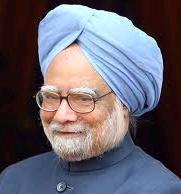 पिछले दिनों सूरजकुंड में सम्पन्न भाजपा की राष्ट्रीय परिषद में आर्थिक प्रस्ताव पर बोलते हुए मेरे सहयोगी श्री वैंकय्या नायडू ने डा0 मनमोहन सिंह द्वारा राज्य सभा में विपक्ष के नेता की हैसियत से लिखे गये एक पत्र को उदृत किया जिसमें इस तथ्य की पुष्टि की गई थी। फेडरेशन ऑफ महाराष्ट्र ट्रेडर्स ने इस संबंध में अपनी चिन्ता से उनको अवगत कराया था। 21 दिसम्बर, 2002 के अपने पत्र में डा0 मनमोहन सिंह ने कहा कि दो दिन पूर्व ही यह मामला राज्यसभा में उठा था। डा0 मनमोहन सिंह लिखते हैं कि ”वित्त मंत्री ने आश्वासन दिया कि सरकार के पास खुदरा व्यापार में विदेशी प्रत्यक्ष निवेश को आमंत्रित करने का कोई प्रस्ताव नहीं है”।
पिछले दिनों सूरजकुंड में सम्पन्न भाजपा की राष्ट्रीय परिषद में आर्थिक प्रस्ताव पर बोलते हुए मेरे सहयोगी श्री वैंकय्या नायडू ने डा0 मनमोहन सिंह द्वारा राज्य सभा में विपक्ष के नेता की हैसियत से लिखे गये एक पत्र को उदृत किया जिसमें इस तथ्य की पुष्टि की गई थी। फेडरेशन ऑफ महाराष्ट्र ट्रेडर्स ने इस संबंध में अपनी चिन्ता से उनको अवगत कराया था। 21 दिसम्बर, 2002 के अपने पत्र में डा0 मनमोहन सिंह ने कहा कि दो दिन पूर्व ही यह मामला राज्यसभा में उठा था। डा0 मनमोहन सिंह लिखते हैं कि ”वित्त मंत्री ने आश्वासन दिया कि सरकार के पास खुदरा व्यापार में विदेशी प्रत्यक्ष निवेश को आमंत्रित करने का कोई प्रस्ताव नहीं है”।
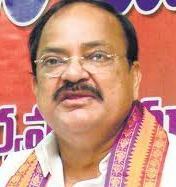 डा0 मनमोहन सिंह को सम्बोधित फेडरेशन ऑफ महाराष्ट्र ट्रेडर्स का पत्र खुदरा में विदेशी निवेश पर और ज्यादा आलोचनात्मक है। फेडरेशन की विदेश व्यापार समिति के चेयरमैन सी.टी. संघवी द्वारा लिखे गये पत्र में कहा गया है कि:
डा0 मनमोहन सिंह को सम्बोधित फेडरेशन ऑफ महाराष्ट्र ट्रेडर्स का पत्र खुदरा में विदेशी निवेश पर और ज्यादा आलोचनात्मक है। फेडरेशन की विदेश व्यापार समिति के चेयरमैन सी.टी. संघवी द्वारा लिखे गये पत्र में कहा गया है कि:
”श्रीमन् आपको स्मरण होगा कि 2002-03 में देश में खुदरा व्यापार के महत्वपूर्ण विषय के सिलसिले में मुझे फेडरेशन ऑफ एसोसिएशन ऑफ महाराष्ट्र के एक प्रतिनिधिमण्डल के साथ राज्यसभा में नेता प्रतिपक्ष के रुप में आप से मिलने का अवसर मिला था।
हमारे विस्तृत वर्णन से पहले ही आपने साफ तौर पर कहा था कि ‘हम खुदरा व्यापार में विदेशी प्रत्यक्ष निवेश की अनुमति नहीं देने देंगे।‘ आपने आगे उल्लेख किया कि ”भारत को ऐसे किस्म के सुधार की कोई जरुरत नहीं है जो रोजगार पैदा करने के बजाय रोजगार को नष्ट करें।”
इसी पत्र में सिंघवी लिखते हैं :
श्रीमन् जैसाकि हमने आपको इन बहुराष्ट्रीय रिटेल श्रृंखला स्टोर संगठनों द्वारा छोटे दुकानदारों (रिटेलों) को प्रतियोगिता में समाप्त करने हेतु (प्रेडटोरी प्राइसिंग) जैसे गलत व्यापारिक हथकण्डे अपनाने के बारे में बताया था। हमारे प्रतिनिधिमण्डल ने आपका ध्यान सूदूर पूर्वी देशों-थाईलैण्ड, मलेशिया, इण्डोनेशिया-जैसे देशों के खुदरा व्यापार पर इस विदेशी प्रत्यक्ष निवेश के पड़ने वाले विपरीत प्रभाव की ओर दिलाया था जिन्होंने 1990 के दशक के अन्त में इसकी अनुमति दी थी।
बाद में, हमारा प्रतिनिधिमण्डल आपसे अनेक अवसरों पर मिला और इस विषय पर विभिन्न सम्बन्धित अधिकारियों को सौंपे गए हमारे विस्तृत ज्ञापनों को भी आपको सौंपा । कुल मिलाकर राष्ट्रीय दृष्टिकोण से इस विषय की गंभीरता के संदर्भ में आपने 18 और 19 दिसम्बर, 2002 को राज्यसभा में यह मुद्दा उठाया और तब के वित्त मंत्री से यह आश्वासन भी लिया कि खुदरा व्यापार मेें विदेशी प्रत्यक्ष निवेश की अनुमति देने सम्बन्धी कोई प्रस्ताव सरकार के पास नहीं है। फेडरेशन को सम्बोधित आपका पत्र संदर्भ के लिए संलग्न है।
***
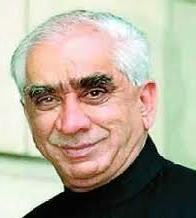 खुदरा में विदेशी प्रत्यक्ष निवेश सम्बन्धी अपने फैसले के बचाव में प्रधानमंत्री द्वारा राष्ट्र को सम्बोधित करने सम्बन्धी भाषण में इस टिप्पणी कि ”पैसा पेड़ों पर नहीं उगता” पर बहुत सी दिलचस्प टिप्पणियां की जा रही हैं।
खुदरा में विदेशी प्रत्यक्ष निवेश सम्बन्धी अपने फैसले के बचाव में प्रधानमंत्री द्वारा राष्ट्र को सम्बोधित करने सम्बन्धी भाषण में इस टिप्पणी कि ”पैसा पेड़ों पर नहीं उगता” पर बहुत सी दिलचस्प टिप्पणियां की जा रही हैं।
मेरे सहयोगी जसवंत सिंह जो एक सेवानिवृत सैन्य अधिकारी हैं, द्वारा ‘दि हिन्दू‘ (28 सितम्बर, 2012) में एक लेख लिखा गया है, जिसमें उनके अपने टैंक-चालक से हुई बातचीत का उल्लेख है। जसवंत सिंह जी का लेख मुझे काफी ज्ञानप्रद लगा। उनके चालक के साथ हुई बातचीत वाला पैराग्राफ मुझे आज के ब्लॉग के टेलपीस के लिए उपयुक्त लगा।
टेलपीस (पश्च्यलेख)
इस आश्चर्य जनक , अनावश्यक फटकार के एक दिन बाद ही अब सेवानिवृत सैनिक मेरे टैंक-चालक का फोन आया जो मेरे साथ कई वर्षों तक टैंक के साथ झुके हुए स्थान पर रातें काट चुका है। मैंने उसका नाम शायद इसलिए छुपा रखा है कि कोई अकुशल इंटेलीजेंस ब्यूरो उसे तंग न करे। अपनी ठेठ शेखावटी बोली और लहजे में बोला ”साहिब” कृपया प्रधानमंत्री को बताओ कि पैसा वास्तव में पेड़ो और पौधों पर ही उगता है; हमें सभी फल, सब्जियां और पशुओं का चारा तथा ईंधन भी एक ‘पेड़‘ से मिलता है। इसलिए उन्हें बताइए कि वह किसानों के बारे में सोचें, न कि उन ‘विदेशियों‘ के बारे में जो दो शताब्दी पूर्व एक कम्पनी के रुप में आए और हमारी जमीन ले ली। एक ‘बिस्वा‘ भी हमारे लिए नहीं छोड़ा।” मैंने उससे वायदा किया कि मैं ऐसा ही करुंगा लेकिन उसको सलाह दी कि वह ऐसे निराशाजनक विचारों से अपने सेवानिवृत जीवन को बिगाड़े नहीं और जैसे हमारे ‘ढाबों‘ ने अमेरिका के मगरुर केटंचुरी के कर्नल को परास्त किया वैसे ही भारत इसे भी परास्त कर देगा। और इस किस्से का एक शब्द भी बनावटी नहीं है।
लालकृष्ण आडवाणी
नई दिल्ली
01 अक्टूबर, 2012

September 30, 2012
FDI IN RETAIL WILL DESTROY EMPLOYMENT, SAID DR. MANMOHAN SINGH IN 2002
In an earlier blog I had recalled how when the NDA Government was in office the then Chief Whip of the Congress Party Shri Priya Ranjan Dasmunshi had cited the Planning Commission’s recommendation in favour of FDI in retail, and on that basis condemned the Vajpayee Government for contemplating this ‘anti-national’ move.
Arun Shourie as Minister of Commerce promptly stood up in Parliament to affirm that Government was not in favour of any such proposal.
 At the Suraj Kund conclave of the BJP’s National Council, speaking on the Economic Resolution, my colleague Shri Venkaiah Naidu read out from a letter written by Dr. Manmohan Singh, at that point of time Leader of the Opposition in the Rajya Sabha, to confirm this fact. Federation of Maharashtra Traders had conveyed their concern to him about this matter. In his letter dated December 21, 2002 Dr. Manmohan Singh said that the matter had been raised in the Rajya Sabha two days earlier. “The Finance Minister gave an assurance,” Dr. Manmohan Singh said approvingly, “that Government had no proposal to invite Foreign Direct Investment in Retail Trade.”
At the Suraj Kund conclave of the BJP’s National Council, speaking on the Economic Resolution, my colleague Shri Venkaiah Naidu read out from a letter written by Dr. Manmohan Singh, at that point of time Leader of the Opposition in the Rajya Sabha, to confirm this fact. Federation of Maharashtra Traders had conveyed their concern to him about this matter. In his letter dated December 21, 2002 Dr. Manmohan Singh said that the matter had been raised in the Rajya Sabha two days earlier. “The Finance Minister gave an assurance,” Dr. Manmohan Singh said approvingly, “that Government had no proposal to invite Foreign Direct Investment in Retail Trade.”
 The letter from Federation of Associations of Maharashtra has attributed to Dr. Manmohan Singh an even more forthright criticism of FDI in retail. The letter written by Shri C.T. Shanghvi, Chairman, Foreign Trade Committee of the Federation, has said:
The letter from Federation of Associations of Maharashtra has attributed to Dr. Manmohan Singh an even more forthright criticism of FDI in retail. The letter written by Shri C.T. Shanghvi, Chairman, Foreign Trade Committee of the Federation, has said:
“Your honour would recall that during the year 2002-03 I had occasion to lead a delegation of the Federation of Associations of Maharashtra to meet your goodself as the Leader of the Opposition in the Rajya Sabha, in connection with the important subject of FDI in retail trade of the country.
Even before we made our detailed submissions, you had categorically stated that ‘we should not permit Foreign Direct Investment in Retail Trade’. You had further mentioned that “India does not require this kind of reform which would, rather than creating employment, destroy employment”.
Shanghvi adds in the same letter :
We had briefed you, Sir, about the unfair trade practices such as (predatory pricing) adopted by the multinational retail chain stores organization to kill the competition by small retailers. Our delegation also drew your kind attention to the highly undesirable impact that has been felt by some of the Far Eastern Countries – Thailand, Malaysia, Indonesia - who had erroneously permitted FDI in retail trade during the late 1990s.
Later, our delegation met you on a couple of occasions and submitted the details of our various representations to the concerned authorities on this subject. In view of the seriousness of this issue from the overall National angle, you had raised the subject in the Rajya Sabha on 18th/19th December 2002 and had obtained an assurance from the then Finance Minister that there was no proposal before the Government for permitting FDI in retail trade. Your letter addressed to the Federation in this regard is enclosed for ease of reference.
***
 Many interesting comments have been made on the Prime Minister’s address to the nation in which defending his decision on FDI in Retail, he made the trite remark “money does not grow on trees.”
Many interesting comments have been made on the Prime Minister’s address to the nation in which defending his decision on FDI in Retail, he made the trite remark “money does not grow on trees.”
My colleague Jaswant Singh who is an ex-Army Officer has written an article for The Hindu (September 28, 2012) which recounts his conversation with his own tank-driver. I found Jaswant Singh’s article enlightening. The paragraph quoting the interaction with his driver may be very appropriate as tail piece for today’s blog. This is what Jaswant Singh says about the PM’s “rather admonitory” remark :
TAILPIECE
Just a day after this astonishing, also so unneeded, reprimand, I received a telephone call from a retired soldier colleague, who had served with me as my tank driver, sharing with me for many years my tank lean-to shelter at night. I save his name lest he be nagged by the otherwise inefficient Intelligence Bureau. “Sahib”, he said in his thick Shekhawati dialect and accent, “please educate the PM that money does actually grow on trees and plants; we get all our fruits, vegetables and animal feed and also firewood from a ‘tree’. So tell him to think of the farmers, not of the ‘foreigners’, who over two centuries back came as a company and took away our land. Not one ‘biswa’ (a measure of land) was left to us”. I promised him I would do so, but advised him not to disturb his retired life over such depressing thoughts, for just as our ‘dhabas’ defeated a rather cocky Colonel from Kentucky, US of A, India will defeat this, too. And not one word of this anecdote is made up.
L.K. Advani
New Delhi
01 October, 2012

September 23, 2012
जब वरिष्ठ कांग्रेसी सांसद ने खुदरा में एफडीआई को राष्ट्र-विरोधी माना
एनडीए सरकार के समय एक बार खुदरा में विदेशी प्रत्यक्ष निवेश के (एफडीआई) मुद्दे पर भाजपा और कांग्रेस में तीखा वाद-विवाद हुआ। यह 16 दिसम्बर, 2002 की बात है।
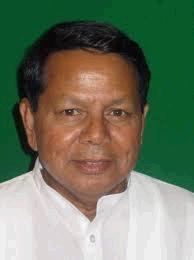 कांग्रेस के एक प्रमुख सांसद श्री प्रिय रंजन दासमुंशी ने इकनॉमिक्स टाइम्स में प्रकाशित खुदरा में विदेशी प्रत्यक्ष निवेश सम्बन्धी एक लेख जिसमें कहा गया था कि योजना आयोग ने दसवीं पंचवर्षीय योजना के प्रारुप दस्तावेज में माना है कि इस क्षेत्र में विदेशी प्रत्यक्ष निवेश की जरुरत है, का हवाला देते हुए दासमुंशी ने कहा कि नौकरशाहों के माध्यम से ”बहुराष्ट्रीय खुदरा रिटेलर्स लगातार सरकार पर दबाव बना रहे हैं कि वह खुदरा में विदेशी प्रत्यक्ष निवेश जैसे राष्ट्र विरोधी फैसले की अनुमति दे।”
कांग्रेस के एक प्रमुख सांसद श्री प्रिय रंजन दासमुंशी ने इकनॉमिक्स टाइम्स में प्रकाशित खुदरा में विदेशी प्रत्यक्ष निवेश सम्बन्धी एक लेख जिसमें कहा गया था कि योजना आयोग ने दसवीं पंचवर्षीय योजना के प्रारुप दस्तावेज में माना है कि इस क्षेत्र में विदेशी प्रत्यक्ष निवेश की जरुरत है, का हवाला देते हुए दासमुंशी ने कहा कि नौकरशाहों के माध्यम से ”बहुराष्ट्रीय खुदरा रिटेलर्स लगातार सरकार पर दबाव बना रहे हैं कि वह खुदरा में विदेशी प्रत्यक्ष निवेश जैसे राष्ट्र विरोधी फैसले की अनुमति दे।”
दासमुंशी ने आगे कहा कि सरकार ने विदेशी प्रत्यक्ष निवेश की सीमाएं तय करने के उद्देश्य से मंत्रियों का समूह गठित किया था। मंत्रियों के समूह ने खुदरा व्यापार में विदेशी प्रत्यक्ष निवेश की अवधारणा को रद्द कर दिया था। उन्होंने बताया कि बाद में, रोजगार सम्बन्धी योजना आयोग की एक टास्क फोर्स ने इसे इस आधार पर रद्द करने की सलाह दी थी कि इससे रोजगार पर बुरा असर पड़ेगा।
दासमुंशी ने कहा: सर, वाणिज्य मंत्री यहां हैं। मैं उनसे स्थिति स्पष्ट करने और इसे रिकार्ड में दर्ज कराने का अनुरोध करता हूं।
उस समय के वाणिज्य और उद्योग मंत्री अरुण शौरी उसी समय खड़े होकर बोले: सर, जैसाकि आप जानते हैं और सम्मानीय सदस्य भी कि वर्तमान नीति जोकि 1997 से चली आ रही है, के अनुसार खुदरा व्यापार में विदेशी प्रत्यक्ष निवेश की अनुमति नहीं है।
दासमुंशी: मैंने कहा कि योजना आयोग द्वारा तैयार दसवीं योजना का दस्तावेज इसे स्वीकृति देता है जबकि मंत्रियों के समूह ने इसे रद्द किया है।
श्री अरुण शौरी: किसी भी हालत में, दसवीं योजना का दस्तावेज राष्ट्रीय विकास परिषद की बैठक में विचारार्थ आएगा। कांग्रेसी मुख्यमंत्रियों सहित सभी मुख्यमंत्रियों को वैयक्तिक प्रावधानों पर अपनी बात कहने का अवसर मिलेगा। उसमें आयात या संयुक्त उपक्रमों में व्यापारिक गतिविधयों, थोक गतिविधियों की अनुमति है और वह भी उनमें विशेषीकृत चीजों पर। यदि आप चाहते हैं कि मैं उन्हें पढ़कर सुनाऊं तो मैं पढ़ सकता हूं लेकिन जहां तक सामान्यतया खुदरा व्यापार का सम्बन्ध है, वह बिल्कुल सही है कि 1997 से यही सरकार की नीति रही है। मैं समझता हूं कि मात्र दो कम्पनियों को ही इस सम्बन्ध में 1997 से पूर्व अनुमति दी गई लेकिन उसके बाद से किसी को भी अनुमति नहीं दी गई है। हमने रिजर्व बैंक से भी चैक कर लिया है।
***
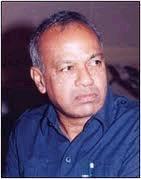 भारत के इंटेलीजेंस क्षेत्रों में बी. रमन एक अत्यन्त प्रतिष्ठित नाम है। वह देश की बाह्य गुप्तचर एजेंसी अनुसंधान एवं अन्वेषण विंग (RAW) के मुखिया रहे हैं। वह भारत सरकार के मंत्रिमण्डलीय सचिवालय से अतिरिक्त सचिव के पद से निवृत्त हुए।
भारत के इंटेलीजेंस क्षेत्रों में बी. रमन एक अत्यन्त प्रतिष्ठित नाम है। वह देश की बाह्य गुप्तचर एजेंसी अनुसंधान एवं अन्वेषण विंग (RAW) के मुखिया रहे हैं। वह भारत सरकार के मंत्रिमण्डलीय सचिवालय से अतिरिक्त सचिव के पद से निवृत्त हुए।
आऊटलुक वेबसाइट पर हाल ही में लिखे गए एक लेख में उन्होंने इस पर खेद प्रकट किया है कि सीबीआई से लोगों को विश्वास तेजी से नीचे गिरा है। उन्होंने अनुरोध किया है कि इस एजेंसी के कामकाज की समीक्षा हेतु एक व्यापक जांच कराई जाए और लोगों की नजरों में इस एजेंसी की प्रतिष्ठा पुन: स्थापित करने हेतु कदम उठाए जाएं।
रमन ने अपने लेख में एक दिलचस्प तथ्य का उल्लेख किया है कि सन् 2010 के दिसम्बर के अंतिम सप्ताह में चीन सरकार ने, चीन में भ्रष्टाचार पर एक ‘श्वेत पत्र‘ प्रकाशित किया है, और बताया गया है कि कैसे सरकार उससे निपट रही है।
पूर्व रॉ प्रमुख कहते हैं: ”यहां तक कि चीन जैसे अधिनायकवादी देश में, सरकार को यह जरुरत महसूस हुई कि वह जनता को बताए कि भ्रष्टाचार सम्बन्धी उनकी चिंताओं से वह अवगत है।
भारत के एक लोकतंत्र होने जिसमें लोगों के प्रति जवाबदेही मानी जाती है, के बावजूद सरकार ने सीबीआई की सार्वजनिक आलोचना के प्रति लापरवाह रवैया अपनाया और एक संस्था का पतन होने दिया जिससे भ्रष्टाचार को फलने-फूलने की अनुमति मिली।”
***
अमेरिका का सबसे बड़ा रिटेलर आज वॉलमार्ट है। दुनिया भर में इसके हजारों स्टोर्स हैं। सर्वाधिक अमेरिका में हैं। उसके बाद मैक्सिको में। न्यूयॉर्क टाइम्स रिपोर्ट के मुताबिक यह उपलब्धि इस रिटेलर की मैक्सिको इकाई ने ”इस भारी वृध्दि के लिए खुले हाथों से धन परोसकर” की है। टाइम्स में प्रकाशित जांच के बाद अप्रैल, 2012 में वॉलमार्ट ने पुष्टि की कि उसने वॉलमार्ट डि मैक्सिको में रिश्वत के आरोपों की जांच की है।
टेलपीस (पश्च्य लेख)
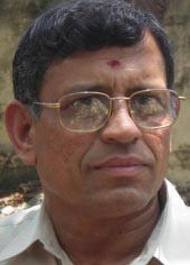 जिस दिन (14 सितम्बर) प्रधानमंत्री मनमोहन सिंह ने वॉलमार्ट के स्वागत हेतु लाल कालीन बिछाया, उसी दिन न्यूयार्क सिटी में अमेरिका का विशालतम वॉलमार्ट बंद हो गया।
जिस दिन (14 सितम्बर) प्रधानमंत्री मनमोहन सिंह ने वॉलमार्ट के स्वागत हेतु लाल कालीन बिछाया, उसी दिन न्यूयार्क सिटी में अमेरिका का विशालतम वॉलमार्ट बंद हो गया।
विडम्बना देखिये फिर शुक्रवार को यूपीए सरकार ने वॉलमार्ट को एफडीआई का गुलदस्ता सौंपा और लॉबिस्टों ने आश्वस्त किया कि छोटे खुदरा व्यापारी सुरक्षित हैं, उसी दिन प्रसिध्द पत्रिका फॉरेन अफेयर्स के समूह से प्रकाशित एक वेब समाचारपत्र एटलांटासिटिज ने एक सदमा पहुंचाने वाला शीर्षक समाचार प्रकाशित किया: ”रिडाएटिंग डेथ: हॉउ वॉलमार्ट डिस्प्लेसस नियरबाय स्माल बिजनेस्स।”
अनेक सप्ताह पूर्व, 30 जून को 10 हजार से ज्यादा लोग अमेरिका के धनाढय शहर लॉस एजिंल्स में वॉलमार्ट स्टोर्स के विरुध्द ”वॉलमार्ट = पॉवरटी (गरीबी)” नारे लगाते हुए शहर में निकले।
1 जून को हजारों लोगों ने वाशिंगटन डीसी में वॉलमार्ट के विरुध्द विरोध प्रदर्शन किया। पूरे संयुक्त राज्य अमेरिका में ”से-नो-टू-वालमार्ट” आंदोलन चल रहा है।
-एस. गुरुमूर्ति
दि न्यू इण्डियन एक्सप्रेस
(20 सितम्बर, 2012) में
लालकृष्ण आडवाणी
नई दिल्ली
23 सितम्बर, 2012

September 22, 2012
WHEN SENIOR CONGRESS MPs REGARDED FDI IN RETAIL ANTI-NATIONAL
This issue of FDI in retail once occasioned sharp exchanges between BJP and Congress when the NDA Government was in office. This happened on December 16, 2002.
 A leading Congress M.P., Shri Priya Ranjan Dasmunshi, referred to an Economic Times article which had written that on the issue of FDI in retail, the Planning Commission in its draft document of the Tenth Plan had affirmed that FDI was required in this sector, Dasmunshi said that through bureaucrats, “multinational retailers are continuously putting pressure on the Government to take this anti-national decision of allowing foreign direct investment in the retail trade.”
A leading Congress M.P., Shri Priya Ranjan Dasmunshi, referred to an Economic Times article which had written that on the issue of FDI in retail, the Planning Commission in its draft document of the Tenth Plan had affirmed that FDI was required in this sector, Dasmunshi said that through bureaucrats, “multinational retailers are continuously putting pressure on the Government to take this anti-national decision of allowing foreign direct investment in the retail trade.”
Dasmunshi added that Government had appointed a Group of Ministers to lay down the limits of FDI. This GOM had rejected the concept of FDI in retail trade. Later a Task Force of the Planning Commission on Employment also, he said, categorically advised against it on the ground that it would aversely affect employment.
Dasmunshi said: Sir, the Commerce Minister is here. I request him to clarify the position and let it go on record.
Arun Shourie who was Minister of Commerce and Industry at the time immediately stood up to say: Sir, the existing policy since 1997, as you know, and the Hon. Member knows, is that foreign direct investment in retail trade is not permitted.
Dasmunshi: I said that the Tenth Plan document prepared by the Planning Commission has endorsed it while the Group of Ministers has rejected it.
Shri Arun Shourie : In any case, the Tenth Plan document is also coming up before the National Development Council. All the Chief Ministers including Congress Chief Ministers would have an occasion to comment on individual proposals. In that, there are trading activities for exports or for joint ventures, which are permitted in wholesale activities and so on but those are specialised things. If you would like me to read them, I can read them out but as far as retail trade in general is concerned, he is completely right that since 1997 that has been the Government’s policy. I understand, there were two companies which were given permission before 1997 in this regard but since then nobody has been given permission. We have checked that with the Reserve Bank also.
***
 B. Raman is a highly respected name in India’s intelligence circles. He was head of the country’s external intelligence agency, Research and Analysis Wing (RAW). He retired as Additional Secretary, Cabinet Secretariat, Government of India.
B. Raman is a highly respected name in India’s intelligence circles. He was head of the country’s external intelligence agency, Research and Analysis Wing (RAW). He retired as Additional Secretary, Cabinet Secretariat, Government of India.
In a recent article written for the Outlook website, Raman has regretted how public confidence in the CBI has been rapidly going down. He has urged that a comprehensive enquiry into the functioning of this agency should be ordered and measures should be initiated to restore its image in the eyes of the people.
An interesting fact mentioned by Raman in his article that in the last week of December, 2010, the Chinese Government issued a White Paper on corruption in China, and how government has been dealing with it.
The former RAW Chief comments: “ Even in an authoritarian country like China, the Government has felt the need for convincing the public that it is aware of their concerns over corruption.
“Despite India being a democracy supposedly accountable to the people, the Government has shown a shocking lack of concern over public criticism of the CBI and over evidence of a general institutional decay which has permitted corruption to thrive.”
***
America’s biggest retailer today is Walmart. It has thousands of stores all around the world. The largest number is in the U.S. The second largest is in Mexico. According to a New York Times report, this has been achieved by the retail giant’s Mexico arm by “dishing out generous payouts to aid its mammoth growth.” Shortly after the Times published its investigation in April, 2012, Walmart confirmed that it had launched an investigation into the allegations of bribery at Walmart de Mexico.
TAILPIECE
 On the same Friday (September 14) Prime Minister Manmohan Singh rolled out the red carpet for Walmart, New York City, America’s largest, shut Walmart out.
On the same Friday (September 14) Prime Minister Manmohan Singh rolled out the red carpet for Walmart, New York City, America’s largest, shut Walmart out.
Again ironically the very Friday the UPA government handed the FDI bouquet to Walmart and lobbyists assured that small retailers are safe, Atlanticcities, a web-newspaper from the stable of the famous Foreign Affairs magazine, carried a devastating headline news: ‘Radiating Death: How Walmart Displaces Nearby Small Businesses’.
Weeks ago, on June 30, over 10,000 people, shouting “Walmart = Poverty”, marched through Los Angeles, America’s richest city, against Walmart stores.
On June 1, hundreds protested in Washington DC against Walmart. “Say-No-To-Walmart” is an ongoing movement all over the United States.
- S. Gurumurthy
in- The New Indian Express
September 20, 2012
L.K. Advani
New Delhi
23 Sept, 2012

September 16, 2012
दो उपलब्धियां, एक अपेक्षा
सन् 1992 में, प्रसिध्द अमेरिकी राजनीतिक विज्ञानी फ्रांसिस फ्युकुयमा ने एक पुस्तक लिखी थी ”दि एण्ड ऑफ हिस्ट्री एण्ड दि लास्ट मैंन”। फ्युकुयमा का तर्क था कि नब्बे के दशक के अंत में दुनियाभर में उदार लोकतंत्रों का प्रसार मानवता के सामाजिक-आर्थिक मूल्यांकन का अंतिम बिन्दु है। मुख्य रुप से वह कम्युनिज्म के पतन का संदर्भ दे रहे थे। इसे इतिहास का अंत कहना शायद अतिश्याक्ति हो। लेकिन 1989 में बर्लिन दीवार का ढहना निस्संदेह वैश्विक इतिहास में एक विलक्षण मोड़ था। इसने लोकतंत्रों के प्रभुत्व और अमेरिकी तथा सोवियत ब्लॉकों के बीच चल रहे शीत युध्द में वाशिंगटन की विजय को रेखांकित किया।
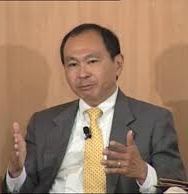 1989 भारत के राजनीतिक इतिहास का भी एक निर्णायक मोड़ रहा। इस वर्ष के लोकसभाई चुनावों में भाजपा ने एक लम्बी छलांग लगाते हुए दयनीय दो सीटों 1984 से में 86 सीटों 1989 का सम्मानजनक स्थान प्राप्त किया। भाजपा राष्ट्रीय राजनीति पर कांग्रेस पार्टी के एकाधिकार को चुनौती देने वाले मुख्य दल के रुप में उभरी।
1989 भारत के राजनीतिक इतिहास का भी एक निर्णायक मोड़ रहा। इस वर्ष के लोकसभाई चुनावों में भाजपा ने एक लम्बी छलांग लगाते हुए दयनीय दो सीटों 1984 से में 86 सीटों 1989 का सम्मानजनक स्थान प्राप्त किया। भाजपा राष्ट्रीय राजनीति पर कांग्रेस पार्टी के एकाधिकार को चुनौती देने वाले मुख्य दल के रुप में उभरी।
अगले दशक में भाजपा 1996 तक, तेजी से बढ़ती रही और कांग्रेस पार्टी सिकुड़ती गई, जब भाजपा लोक सभा में सर्वाधिक बड़े दल के रुप में उभरी, और 1998-1999 में भाजपा के नेतृत्व वाले एनडीए ने केंद्र सरकार का पूर्ण नियंत्रण संभाल लिया; और इसने 6 वर्षों तक देश को एक स्थिर, अच्छी सरकार और विभिन्न क्षेत्रों में अर्थपूर्ण प्रगति करने वाली सरकार दी। तब से, जब भी कोई मुझसे पूछता है: राष्ट्रीय राजनीति में भाजपा के मुख्य योगदान को आप कैसे निरुपित करेंगें; तो सदैव मेरा उत्तर रहता है: भारत की एकदलीय प्रभुत्व वाली राजनीति को द्विध्रुवीय राजनीति में परिवर्तित करना।
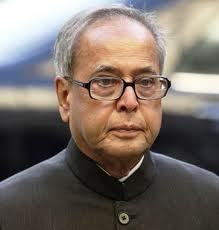 मैं मानता हूं कि यह उपलब्धि न केवल भाजपा अपितु कांग्रेस और निस्संदेह देश तथा इसके लोकतंत्र के लिए वरदान सिध्द हुई है दुर्भाग्य से कांग्रेस पार्टी इसे इस रुप में नहीं लेती, भाजपा को एक मुख्य विपक्ष मानकर जिसके साथ सतत् सवांद करना शासन के लिए लाभकारी हो सकता है के बजाय इसे एक शत्रु के रुप में मानती है जिसे हटाना और किसी भी कीमत पर मिटाना उसका लक्ष्य है।
मैं मानता हूं कि यह उपलब्धि न केवल भाजपा अपितु कांग्रेस और निस्संदेह देश तथा इसके लोकतंत्र के लिए वरदान सिध्द हुई है दुर्भाग्य से कांग्रेस पार्टी इसे इस रुप में नहीं लेती, भाजपा को एक मुख्य विपक्ष मानकर जिसके साथ सतत् सवांद करना शासन के लिए लाभकारी हो सकता है के बजाय इसे एक शत्रु के रुप में मानती है जिसे हटाना और किसी भी कीमत पर मिटाना उसका लक्ष्य है।
प्रणव मुकर्जी अपवाद थे। नेता लोकसभा के रुप में यूपीए के अधिकांश कार्यकाल में उन्होंने मुख्य विपक्ष के नेतृत्व से निरंतर संवाद बनाए रखा। अत: जब हाल ही में कोयला सम्बन्धी सीएजी रिपोर्ट पर कांग्रेस पार्टी ने सीएजी पर गैर-जिम्मेदार और निंदात्मक टिप्पणियां की तो, हमने उनसे मिलने का फैसला किया तथा उनसे अनुरोध किया कि वे अपने पूर्ववर्ती सहयोगियों को कुछ सही सलाह दें।
श्री एम. हिदायतुल्ला द्वारा सम्पादित दो खण्डों वाले कांस्टीटयूशल लॉ ऑफ इण्डिया में मुझे 1953 में डा. भीमराव अम्बेडकर द्वारा संसद में दिए गए भाषण को पढ़ने का मौका मिला, जिसमें उन्होंने न केवल नियंत्रक और महालेखाकार को ”भारत के संविधान में संभवतया सर्वाधिक महत्वपूर्ण अधिकारी” वर्णित किया है अपितु इस पर भी खेद प्रकट किया है कि उन्होंने उसे अपना दायित्व ढंग से निभाने के लिए पर्याप्त अधिकार नहीं दिए हैं।
डा. अम्बेडकर कहते हैं:
”यदि इस अधिकारी को अपनी डयूटी निभानी हो-और उनकी डयूटी, मैं मानता हूं कि न्यायपालिका से भी किसी भी हालत में कम नहीं है, वह भी न्यायपालिका की तरह निश्चित रुप से स्वतंत्र होना चाहिए। लेकिन, सर्वोत्तम न्यायलय सम्बन्धी अनुच्छेदों और महालेखाकार सम्बन्धी अनुच्छेदों की तुलना करें, तो मैं यही कह सकता हूं कि हमने उसे वैसी स्वतंत्रता नहीं दी है जैसी न्यायपालिका को दी है, यद्यपि मैं व्यक्तिगत रुप से महसूस करता हूं कि उसे न्यायपालिका की तुलना में ज्यादा स्वतंत्रता देने की जरुरत है।”
***
जब मैं विगत् साठ वर्षों के अपने राजनीतिक जीवन पद दृष्टि डालता हूं और यह अनुमान लगाने का प्रयास करता हूं कि जनसंघ और भाजपा की भारतीय राजनीति को दूसरी उपलब्धि क्या रही, तो मैं कह सकता हूं कि त्रासद आपातकाल के विरुध्द लड़ने और लोकनायक जयप्रकाश का सहयोग करना। इस संदर्भ में भाजपा की एक महत्वपूर्ण भूमिका रही।
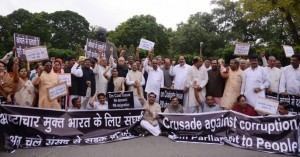
देश की राजनीतिक आज एक ऐसे बिन्दु पर पहुंची है जहां ‘कोलगेट‘ के मुद्दे को एनडीए ने संसद में सशक्त ढंग से उठाया और अब सर्वोच्च न्यायलय ने इस पर गंभीर रुख लिया है।
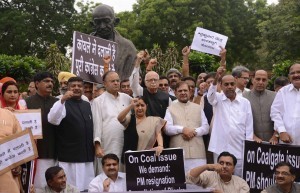
‘कोलगेट‘ एक ऐसा घोटला है, जिसके बारे में सीएजी ने कहा है कि इससे सरकार को 1.86 लाख करोड़ का नुक्सान हुआ है। यह तथ्य है कि सीएजी ने जिस अवधि के कोयला मंत्रालय की समीक्षा की है उस काल में यह मंत्रालय प्रधानमंत्री के पास था और जिसके चलते 2जी और 2008 के कॉमनवेल्थ घोटाले से शुरु हुई घोटालों की श्रृंखला अपनी अति पर पहुंची है।
***
जिस दिन सर्वोच्च न्यायलय ने इस ‘कोलगेट‘ घोटाले से सम्बन्धित छ: मुख्य सवाल सरकार से पूछे हैं, उसी दिन सरकार ने मल्टीब्रांड रिटेल में प्रत्यक्ष विदेशी निवेश सम्बन्धी निर्णय घोषित किया-इसे कुछ क्षेत्रों में भ्रष्टाचार से सुधारों पर ध्यान केंद्रित करने के हताशा भरे प्रयास के रुप में लिया गया। यदि वास्तव में सरकार ऐसा सोचती है तो यह उसकी गंभर गलती होगी। न्यायपालिका, सीएजी और संसद में विपक्ष ने मीडिया के साथ जुटकर यह सुनिश्चित कर दिया है कि भ्रष्टाचार का मुद्दा आगामी लोकसभाई चुनावों तक लोगों के दिमाग में बना रहेगा। खुदरा क्षेत्र में प्रत्यक्ष विदेशी निवेश का मुद्दा वास्तव में यूपीए के लिए हराकरी के सिवाय और कुछ सिध्द नहीं होगा।
मैं गंभीरता से आशा करता हूं कि जिस प्रकार 1977 के चुनाव परिणामों ने यह सुनिश्चित कर दिया कि इसके बाद कोई भी सरकार अनुच्छेद 352 के आपातकाल प्रावधान का हल्के दुरुपयोग के बारे में सोचेगी भी नहीं, उसी प्रकार आने वाले विधानसभाई और लोकसभाई चुनाव भी राजनीतिज्ञों का इसका अहसास कराएंगे कि यदि मतदाता उनके हाथों को भ्रष्टाचार से सना देखेगा तो उन्हें भारी कीमत चुकानी पड़ेगी।
अपने पूर्ववर्ती एक ब्लॉग में मैंने कहा था कि कोई आश्चर्य नहीं होगा यदि आने वाले लोकसभाई चुनावों में कांग्रेस पार्टी का आंकड़ा मात्र दो अंकों में सिमट जाए और इससे सबसे ज्यादा फायदे में भाजपा रहेगी। यदि और जब भी ऐसा होता है तो भाजपा इसे अपनी तीसरी उपलब्धि का दावा कर सकती है: एक भ्रष्टाचार मुक्त भारत बनाने की दिशा में एक महत्वपूर्ण पहला कदम।
लालकृष्ण आडवाणी
नई दिल्ली
15 सितम्बर, 2012

L.K. Advani's Blog
- L.K. Advani's profile
- 10 followers


